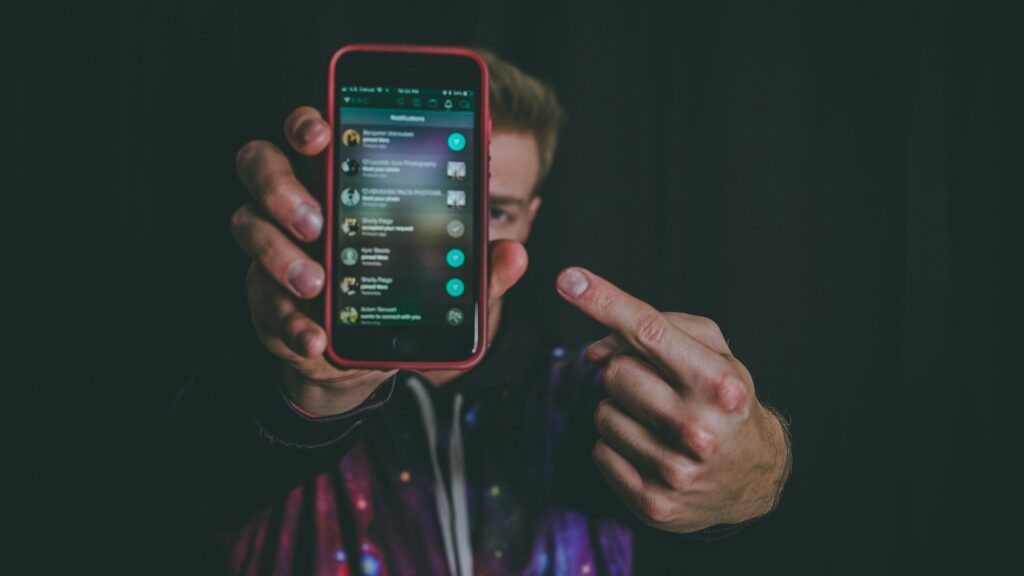In recent years, as digital communication continues to evolve, the prevalence of inappropriate and unlawful online behavior has risen dramatically. One of the most disturbing trends in this context is “cyber flashing,” the non-consensual sending of explicit images or videos to someone via digital platforms, such as social media or messaging apps. In response to this growing issue, California passed a law aimed at curbing cyber flashing and protecting victims of this digital harassment.
What Is the California Cyber Flash Law?
The California Cyber Flash Law (California Civil Code 1708.85) was introduced in 2021 as part of the state’s ongoing efforts to address the increasing prevalence of online harassment. It specifically targets the act of sending unsolicited explicit images or videos to another individual without their consent. While California has a long history of enacting progressive laws around digital privacy, this law is particularly relevant in the age of smartphones and social media, where non-consensual pornography and unwanted explicit material can be sent at the click of a button.
Under the law, individuals who engage in the act of cyber flashing can face criminal charges. Specifically, the law criminalizes sending, sharing, or distributing explicit images or videos to someone without their consent, and it applies to all digital forms of communication, including text messages, social media platforms, and other online communication tools.
To clarify, the cyber flash law covers:
- Sending unsolicited explicit content: Sending an image or video that depicts nudity, sexual acts, or any other form of explicit content to someone without their request or permission.
- Minors are especially protected: California law provides heightened penalties for sending explicit images to minors, ensuring that perpetrators face severe consequences when minors are involved.
- Both criminal and civil consequences: In addition to potential criminal prosecution, victims of cyber flashing may be able to pursue civil lawsuits against the perpetrator for emotional distress or other damages caused by the incident.
The law gives California residents a legal framework to report cyber flashing incidents and pursue legal action against offenders. It also empowers law enforcement to investigate such cases more effectively, with clearer guidelines for prosecution.

How Can a Lawyer Help Win a Case Involving Cyber Flashing?
Dealing with cyber flashing can be a traumatic experience for victims, and navigating the legal system to seek justice can be a daunting task. Having an experienced lawyer by your side can make a significant difference in the outcome of your case. Below are ways in which a lawyer can help victims of cyber flashing win their case:
1. Understanding the Law and Gathering Evidence
Cyber flashing cases often hinge on the ability to prove that explicit material was sent without consent. This can be difficult because much of the evidence exists in digital form, and perpetrators may attempt to cover their tracks or delete messages and images. A skilled lawyer can guide victims through the process of preserving evidence, which is essential for building a strong case.
A lawyer can advise on how to:
- Preserve digital evidence: Screenshots, emails, text messages, and social media posts can all serve as evidence. A lawyer can ensure that this information is collected properly and is admissible in court.
- Identify relevant platforms: Many cases of cyber flashing occur across multiple platforms, and a lawyer can help identify which platforms may have records of the incident, including IP addresses, timestamps, and user interactions.
- Gather additional witness statements: In some cases, witnesses who saw or were part of the interaction can provide valuable testimony to support the victim’s claims.

2. Filing the Right Legal Documents and Taking Action
To pursue justice for cyber flashing, it is crucial to understand what type of legal action is appropriate in each case. A lawyer will help determine whether the situation calls for:
- Criminal charges: If the case involves a clear violation of California’s Cyber Flash Law, a lawyer can assist in pressing criminal charges against the perpetrator. The lawyer will work with law enforcement to ensure that all legal avenues are explored, including identifying the perpetrator, collecting evidence, and coordinating with prosecutors.
- Civil lawsuits: In addition to criminal charges, victims may seek damages through a civil lawsuit for emotional distress or other harms caused by the incident. A lawyer specializing in privacy and online harassment cases will understand how to navigate California’s civil law system to maximize potential compensation.
- Injunctions or restraining orders: If a victim feels that they are in immediate danger or at risk of further harassment, a lawyer can help file for a restraining order or injunction to prevent the perpetrator from continuing the abusive behavior.
3. Expert Legal Representation During Negotiations or Court Proceedings
A skilled lawyer brings expert negotiation skills to the table, which can be essential when dealing with the often complex legal issues surrounding cyber flashing cases. Whether it’s negotiating a settlement with the defendant or advocating for the victim in court, a lawyer can ensure that the victim’s interests are protected.
Lawyers who specialize in cybercrime and online harassment will be familiar with the nuances of these cases and know how to present the evidence effectively. In the courtroom, they can:
- Make a compelling argument for why the defendant should be held accountable for their actions.
- Fight for the victim’s rights to privacy and personal safety, ensuring that the defendant faces appropriate penalties.
4. Emotional Support and Guidance
While a lawyer’s primary role is to provide legal counsel, many victims of cyber flashing face significant emotional distress as a result of the harassment. A compassionate lawyer will offer guidance through the legal process, helping the victim understand their rights and what to expect as their case progresses. They may also refer victims to mental health professionals or support groups to address the emotional impact of the experience.
Contact the Cyber Flash Experts
The California Cyber Flash Law is a crucial step forward in protecting individuals from online harassment, particularly in an age when explicit content can be shared without consent with just a few clicks. This law empowers victims by providing a clear legal pathway to hold perpetrators accountable for their actions, helping to deter future offenses. For those who have experienced cyber flashing, working with an experienced lawyer can significantly improve their chances of obtaining justice.
A skilled attorney can guide victims through the often-complex legal process, from gathering compelling evidence to filing claims and representing the victim in court. They can also help navigate any unique challenges that arise, such as proving intent or tracing anonymous offenders. Beyond the legal aspects, a compassionate lawyer can offer essential support during an emotionally taxing time.
With the help of an experienced attorney, victims of cyber flashing can not only pursue legal recourse but also begin the process of healing from their experience. Holding offenders accountable sends a powerful message that such behavior will not be tolerated, helping victims reclaim their sense of dignity and safety. By taking legal action, victims can contribute to creating a safer, more respectful digital environment for everyone..

